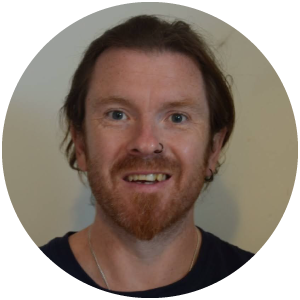Having someone to really listen to you – your challenges, goals and aspirations - can be transformational to how you work and your wider life. Homeless Link’s coaching service matches people working in the homelessness sector with qualified coaches. Recently, we sat down with Homeless Link coach, Steve Sylvan, to dive into his coaching style, what drives him, and how he helps people working in the homelessness sector be heard and improve their wellbeing.
Tell us about your working life before you became a Coach?
I’ve been acting since I was a kid and later transitioned into youth work. When I was working at North Lincolnshire council as a Youth Worker, they funded me to go on a coaching course. It opened my eyes to a whole different way, and the guy who ran the course asked me to come and work with him. He and I delivered training up to diploma level in coaching, and while I was there, I did my coaching accreditation with the Association of Coaching. I’ve just started my masters accreditation.
Tell us about some examples where coaching has been transformational for people?
I used to take people experiencing homelessness out hiking in the Peak District. There was a guy I supported who was physically giant, and not massively mobile. We climbed Kinder Scout and it was a real challenge for him. But the whole journey was a metaphor too, as we walked we talked about his life and we explored how he’d got to that point. It was a really slow hike up to the top of this hill, but it was awesome. His sense of achievement when he got to the top was ace.
Over the years there have been many people I've worked with who have changed their jobs, or their relationships, but most importantly it’s about the journey.
What approach do you take to your coaching work?
Person-centred and human, and I try to ensure the power balance is equal.
My style is really informal, a natural conversation. People don’t always realise they’re being coached, as I’m really human with it. I don’t believe in a “kerpow” approach. I’m about the relationship and the trust. It’s about the journey as opposed to the end goal.
What do you enjoy most about coaching?
I like how conversations differ with different people even when the theme is the same, and I really enjoy the trust people have in me. People thinking “someone’s actually listening to me, someone’s giving me time”. It’s something we take for granted and we don’t realise we don’t have people listening to us until there’s actually someone listening to us.
But when someone stops and fully listens to you, there’s so much value in it. I like being able to give people I don’t know a safe space for them to say “here’s what’s in my head, can you hold some of it for me?
What would you say to people who are thinking of accessing coaching?
I’ve been coached myself for years, I really like the forward movement of coaching and I think it’s hugely beneficial for many.
I’ve worked for a few big organisations and I know that they see the benefits in their teams. One of them was Papyrus, where I coached some of their managers. The feedback I got was that the managers’ wellbeing increased, which in turn led to higher productivity. Organisations might think the coaching needs to be “business-focussed” but if you get the personal bit right, that translates to the work environment anyway.
What do you like to do outside work?
A couple of things – I’ve got two little kids and I love hanging out with them and my wife, they fill my life with joy. I love being in the mountains, I’m training at the moment to be a Mountain Leader. I’ve been Wild Camping in Wales this weekend. I’ve got a huge passion for mountains and for taking people to the mountains. I take walking groups from work. Oh and Star Wars – I love Star Wars.
What Steve’s coachees say about him
We asked one of Steve's recent coachees from youth LGBTQ+ homeless charity Albert Kennedy Trust (akt) about what their experience was like:
Steve was so easy to talk to you and was very relaxed and encouraging. I felt instantly comfortable and the sessions flowed smoothly. I feel like he allowed me to explore my values and come to my own conclusions.
